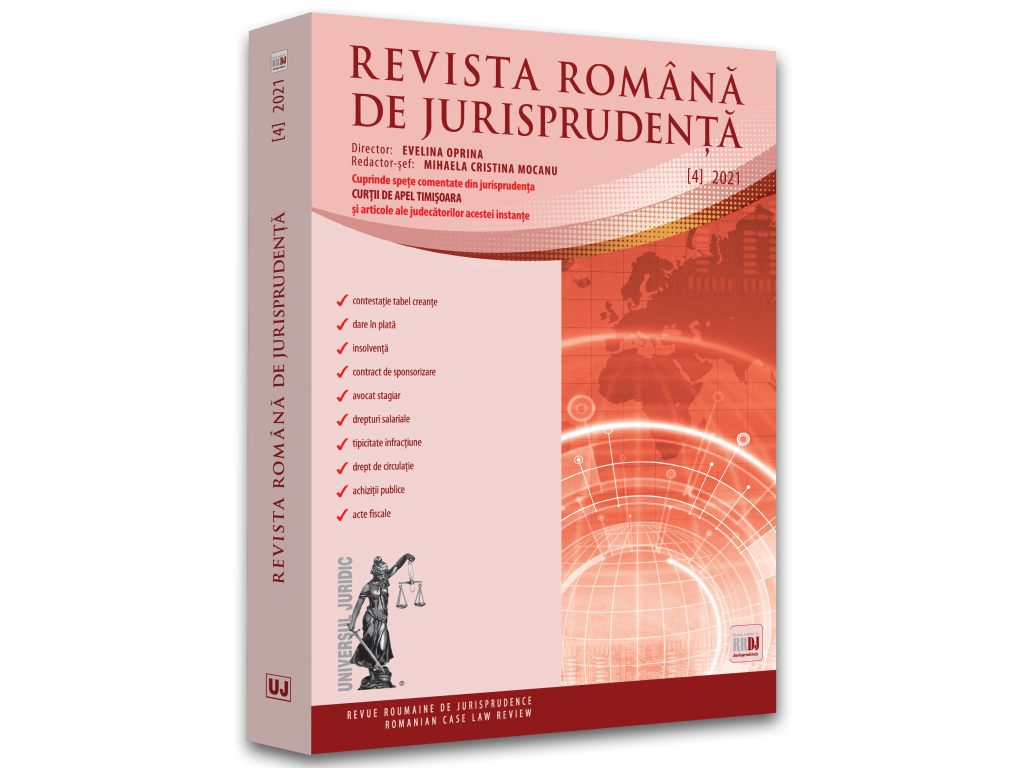Late payment penalty. Criterion for determining excessiveness
DREPTUL AFACERILOR/ASPECTE DE DREPT PROCESUAL
Abstract
The damage referred to in Article 1.541 para. (1) of the Civil Code does not consist in the percentage of the penalty fixed by the contract, but in the actual amount that the creditor of the obligation will receive by applying that percentage.
In this regard, the Court notes that the provisions of Article 1.541 para. (1) of the Civil Code allows the court to intervene in the performance of the contract between the parties, thereby undermining its binding force, when, far from constituting a means of remedying foreseeable damage, the penalty becomes a means of unjust enrichment of the creditor of the obligation, contrary to the principle of equity – regarded as a fundamental principle of civil law. This is because the role of late payment penalties is to ensure compensation for the damage which the creditor will suffer as a result of the debtor's failure to perform the contractual obligation on time, i.e. the negative effect on the debtor's assets – an effect which has an actual value which can be anticipated at the time the contract is concluded and which materialises at the time of non-performance.
Examination of the applicability of Art. 1.541 para. (1) of the Civil Code strictly by reference to the contractually agreed penalty percentage is not likely to capture the actual damage that the parties anticipated at the conclusion of the contract, determining, in practice, the inapplicability of the text of the law to the legal situation at issue.








